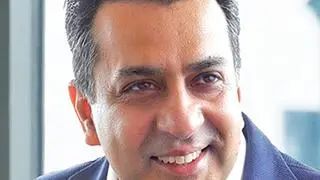The Bharti family on Thursday pledged 10 per cent of their wealth, including 3 per cent of their stake in group flagship Bharti Airtel, for philanthropic purposes by supporting the activities of Bharti Foundation. The family envisions to significantly step up the scope and reach of the foundation’s activities, and enable it to develop and execute innovative development models to support the aspirations of the under-privileged sections, including students of Satya Bharti Schools.
In an interview with BusinessLine , Sunil Bharti Mittal, founder and Chairman, Bharti Enterprises, and Chairman, Bharti Foundation, shares more about the foundation’s proposed science and technology university, and current issues in the telecom sector. Excerpts:
Would you think of increasing the Airtel stake set aside for philanthropic activities? What will be the major courses on offer to under-privileged students?
Yes, we will think of increasing the percentage of stake. This is just the beginning, and we hope to spend more after a good start. The university will have a technology focus. But, going forward, there will be other streams, too. The varsity will offer courses on multiple engineering streams. But the focus will be on electronic, technology, computer sciences and new-age technologies such as augmented reality, virtual reality, artificial intelligence and robotics. We were trying to prepare Indian minds because they are very good. At the same time, getting under-privileged students into the university will be our main focus.
After studying here, a lot of students move abroad for jobs. How will you enure they stay back and do something for the country?
India is getting a lot of diaspora money. I am a big supporter of Indians going abroad and working there and sending money back home. The world is ageing and it needs young people. In fact, I have been fighting with the US government and some European governments for the ease of movement of people and on things such as curbs on H-1B visas. As Chairman of the International Chamber of Commerce, I have been fighting with them in every forum. The Indian market has been opened for FDI — it has become so automatic and easy —- and our duties are compliant with the WTO. When we have opened a 1.3-billion people market, you are suddenly telling us: ‘Guys, we are gonna slow down on taking your people/goods into our country.’ That is not acceptable.
As Chairman of the GSM Association, will you tie up with foreign institutes for courses in your university?
Yes. Given my position, I can connect this university to almost every tech/telecom company in the world. The university also intends to add leading global industry partners such as Facebook, Google, Apple, Microsoft and SoftBank.
With the advent of newer technologies, how about a course on cyber security? The Prime Minister also spoke about cyber security as a viable career for youth…
Cyber security will be a very important main course in the future — there is no doubt about that. With the advent of technologies, we have no choice — the world is going to see significant amount of policies in that space. You are already linking your money, your other details, social part of your living, in cyber space. With cryptocurrencies and all coming in, you are bound to have elements that will try and disturb that equilibrium. You will need people to save you from cyber attacks from time to time.
The telecom industry is still under pressure and there’s a lot of bloodbath. When do you see some correction in your margins?
The bloodbath carries on. I am hoping there will be some let-up in the next 6-8 months because ultimately three operators will be left. Margins are still under pressure.
The government is coming up with a new telecom policy. What are your key demands?
I think spectrum usage charge and licence fee should not be there when you are auctioning spectrum. They should be benign, if not zero. Why would you want to sell and then rent? Other (demands) are right of way and sighting of towers, because in State governments/municipalities, there are still a lot of problems. The Centre is very supportive, but in States, there is no law/policy to smoothen these problems. Finally, make spectrum more affordable.
The Telecom Regulatory Authority of India (TRAI) is working on spectrum pricing for the next auctions. What is your view? Do you think the 700 MHz price should be revised?
The 700 MHz price was absolutely out of line (last time) and that is why nobody bought it. I think it should be much lower than that. I think all spectrum must go down, all bands must go down.
Are you happy with TRAI’s latest recommendation on revising spectrum cap?
I think they should have raised it to 50 per cent in each band, but 35 per cent is also a good move.








Comments
Comments have to be in English, and in full sentences. They cannot be abusive or personal. Please abide by our community guidelines for posting your comments.
We have migrated to a new commenting platform. If you are already a registered user of TheHindu Businessline and logged in, you may continue to engage with our articles. If you do not have an account please register and login to post comments. Users can access their older comments by logging into their accounts on Vuukle.